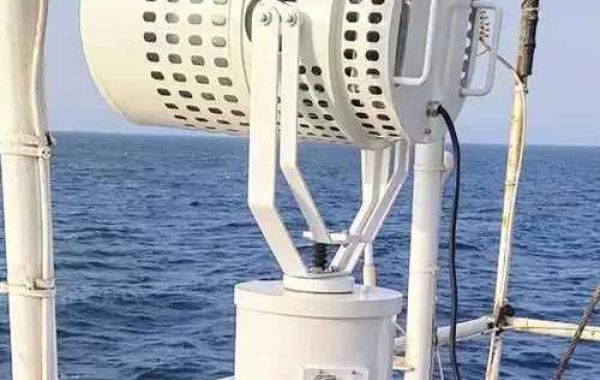With the growing global awareness of environmental protection, the application of LED technology in the field of marine lighting is increasingly valued. LED marine searchlights not only outperform traditional high-intensity discharge lamps in performance but also show significant advantages in terms of environmental benefits. Here are some key environmental benefits of using LED marine searchlights:

Energy Efficiency and Reduction of Greenhouse Gas Emissions
LED lights are renowned for their exceptional energy efficiency, which can be up to 80% more efficient than traditional lighting technologies. This means that they consume less energy while providing the same level of brightness, thereby reducing greenhouse gas emissions associated with power generation. Against the backdrop of the increasingly severe global climate change issue, this advantage is crucial for reducing carbon footprints and mitigating global warming.
Safe Mercury-Free, Reducing Environmental Pollution
Traditional high-intensity discharge lamps, such as mercury lamps, contain harmful mercury elements that are detrimental to the environment. In contrast, LED lights are mercury-free, making them safer for the environment. This not only reduces the risk of environmental pollution but also makes LED lights more environmentally friendly during recycling and disposal, avoiding the leakage of harmful substances.
Long Lifespan, Reducing Waste Generation
LED lights have a lifespan far exceeding that of traditional light sources, reaching 60,000 to 100,000 hours. This extended lifespan reduces the frequency of replacement, thereby reducing the resources needed for manufacturing, packaging, and transportation, as well as the generation of waste, helping to alleviate the pressure on landfills.
Zero Ultraviolet Radiation, Protecting Marine Life
LED lights do not emit ultraviolet radiation, which is particularly important for the protection of marine life. Ultraviolet radiation can cause harm to marine organisms, and the use of LED lights can reduce this risk, safeguarding the health of marine ecosystems.
Reducing Light Pollution, Protecting the Natural Night Environment
LED technology offers precise control over light distribution and intensity, helping to reduce light pollution. This is beneficial for protecting wildlife habitats, maintaining the natural night environment, and reducing the impact on human health.
Lower Maintenance Costs, Reducing Resource Consumption
Due to the durability and long lifespan of LED lights, they reduce the need for maintenance activities, saving time, effort, and money. This not only lightens the workload of the crew but also reduces resource consumption due to maintenance.
Reduced Energy Consumption, Cost Savings
The high energy efficiency of LED lights means they can significantly reduce energy consumption, which is not only beneficial for the environment but also helps save costs. With energy prices continuously rising, this is particularly important.
Supporting Global Climate Change Response
By reducing energy consumption, LED lights help reduce the greenhouse gas emissions needed to combat climate change. This is a positive supplement to global climate change response strategies.
Future Compliance
With increasingly strict energy efficiency and emission regulations, LED lights help ensure the future compliance of vessels, providing a sustainable solution for shipowners and operators.
In summary, using LED marine searchlights not only improves the energy efficiency and performance of vessels but also reduces environmental impact, moving towards a more sustainable future. As technology continues to advance and costs decrease, LED lighting technology is expected to become the mainstream choice for marine lighting in the future.








